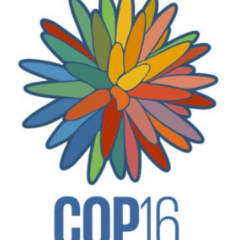Coalition launches to stop EU-Mercosur trade deal

16 March 2021
450 civil society organisations have launched a coalition to stop the EU-Mercosur trade agreement, warning that it would be detrimental to climate, biodiversity, labour and human rights.
The controversial trade deal, if passed, would allow for the free trade of beef, amongst other products, between the EU and Mercosur countries, namely Uruguay, Paraguay, Argentina and Brazil.
The coalition said in their founding statement yesterday that the deal is based on an out-dated 20th century model of trade that “serves corporate interests at the expense of planetary boundaries and animal welfare, and drives untenable social inequalities.”
The agreement runs the risk of incentivising the destruction and biodiversity collapse of the Amazon through livestock expansion and would “give a strong political signal” of approval to ongoing human rights abuses linked to the supply chains implicated in the deal, according to their statement.
A number of Irish organisations have joined the coalition, including Dublin Friends of the Earth, the Irish Wildlife Trust, and the Latin America Solidarity Centre.
A European Council vote is needed on the agreement, and it must then be voted on by the European Parliament, followed by a subsequent ratification from all Member States.
Fianna Fáil, Fine Gael and the Green Party committed to an “economic and sustainability assessment” of the deal in the Programme for Government in order to “inform future action in this area”.
To date, however, no such assessment has been published.
Portugal, the current holder of the EU Presidency, said just last month that passing the trade deal would be important for not only trade but also on a “geopolitical and geostrategic” level, EurActiv reported.
A “direct contradiction” to the European Green Deal
The proposed agreement would be a “direct contradiction” to the European Green Deal, according to a group of researchers led by the University of Oxford and the Nature Conservancy.
The ability to trace the origin of commodities, the protection of local communities and the capacity to enforce sustainability standards are lacking throughout the deal, the authors warned in September.
In particular, the lack of any mechanism to trace the origin of commodities like beef and soy would run a “high risk” of driving deforestation.
The paper also said that international frameworks, such as the United Nations Declaration on the Rights of Indigenous Peoples (UNDRIP), were overlooked in the drafting of the agreement.
Rather than exacerbating the climate crisis, trade should be used as an incentive for countries to adhere and align themselves to the Paris Agreement commitments, which would be a “particularly powerful policy option given the lack of legal mechanisms to enforce international agreements,” the report states.
“It has become painstakingly clear: when we destroy forests we all suffer,” according to lead author Dr. Laura Kehoe.







